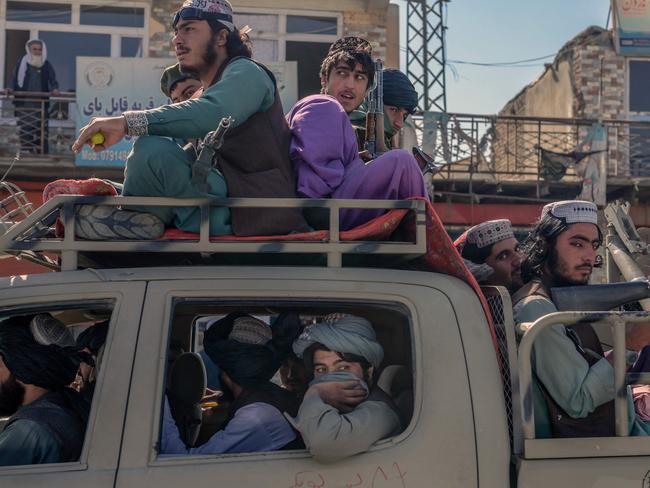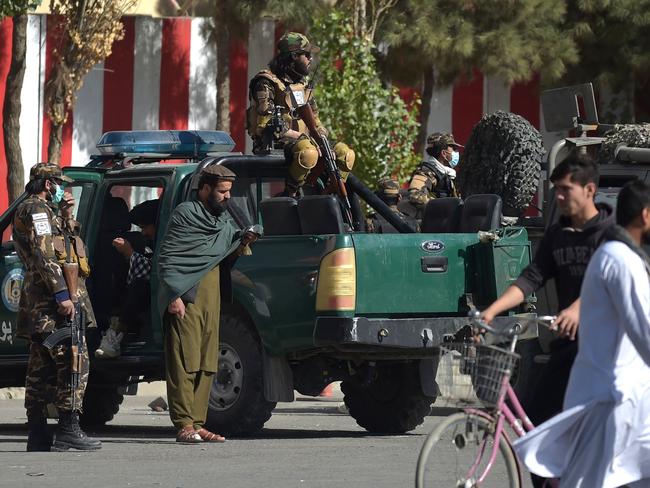Special Forces war crimes probe could take five years to complete
The probe into alleged war crimes by SAS troops in Afghanistan has seen some soldiers begin talks about getting immunity from prosecution.
National
Don't miss out on the headlines from National. Followed categories will be added to My News.
The investigation into alleged war crimes by Australian Special Forces in Afghanistan could take up to five years, the office tasked with coordinating the probe has conceded.
Chris Moraitis, director general of the Office of Special Investigations (OSI) established last year, has told a parliamentary committee solid progress had been made by his team of more than 50 investigators.
But he conceded the complex issue could take anywhere between one year and five years before any evidence could be presented to the DPP to then determine whether anything could go before the courts.
Mr Moraitis said the Taliban’s control of Afghanistan had not impeded the investigation, stemming from the Brereton inquiry into alleged war crimes in Afghanistan between 2005 and 2016, as other avenues and leads could be pursued until the security of that country could be determined.
The Taliban had not meant the probe as a whole could not proceed but he realised even questioning potential witnesses via zoom had challenges not least of all language, online connections and even electricity access.
“The situation is not ideal from an investigations perspective and its pretty self evident access to individuals in Afghanistan or even places is extremely difficult if not currently impossible,” he told the Senate’s Legal Constitutional Affairs committee.
For operational reasons he declined to say how many of the 19 ADF Special Forces personnel were still in the frame but he said at this stage no-one had been “exonerated”.
It is understood some former soldiers are in discussions for potential immunity from prosecutions if they were prepared to give evidence against comrades..
In its submission to the inquiry into Australia’s engagement in Afghanistan over 20 years, the AFP formally conceded any inroads made in that country – including training and mentoring thousands of Afghan police – were now all but gone post Kabul’s fall to the Taliban.
The police force specifically referenced the impact the Taliban’s control of the country has had on its last brief to investigate allegations of war crimes by Australia’s soldiers.

The risk of sending any of its officers to make any in-country probe was simply too great let alone attempting to approach potential witnesses.
“The AFP is not engaging with Taliban controlled Afghanistan,” the AFP concluded bluntly.
The AFP recognised its responsibility to look into the alleged Special Forces behaviour between 2005 and 2016 as dictated by Prime Minister Scott Morrison, but admits it was now tough.
“The security situation in Afghanistan may affect the ongoing investigation of war crimes allegedly perpetrated by ADF personnel in that obtaining evidence and accessing potential witnesses residing there is likely to be more difficult,” it states.
“Any future engagement in Afghanistan would require an assessment of the security situation and other relevant considerations at the time, with the safety of investigators and Afghan nationals remaining the paramount concern.”

There was already a level of disquiet with the investigation by the AFP and Attorney-General’s Department and the likelihood of reaching a level of burden of proof particularly with the emergence of the questionable backgrounds of both Afghans and ADF soldiers that were prepared to give evidence against the Special Forces.
The Office of Special Investigator and the AFP probe however does continue.
Gold Coast solicitor Dave Garratt and well known Melbourne barrister David Brustman QC are lined up to represent some of the accused should it make it to court.
The probe is looking at 36 incidents involving 39 alleged unlawful killings including 23 murders by Special Forces “by or at the direction of members of the Special Operations Task Force Group”.
A total of 19 individuals were initially nominated for investigation although some allegations have been dropped and others have been offered immunity in exchange for giving evidence although had been booted out or left the ADF.
The men have all denied the allegations and as reported over the weekend, key Afghan witnesses who had made allegations against ADF troops had been killed in combat – ironically despite being nominated as militant combatants.
All the claims came from the four-year probe by the Inspector-General of the Australian Defence Force Afghanistan Inquiry Report, commonly known as the Brereton Report after Paul Brereton.
More Coverage
Originally published as Special Forces war crimes probe could take five years to complete



